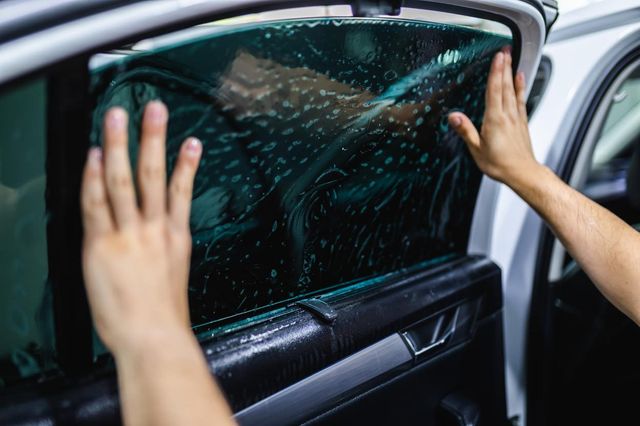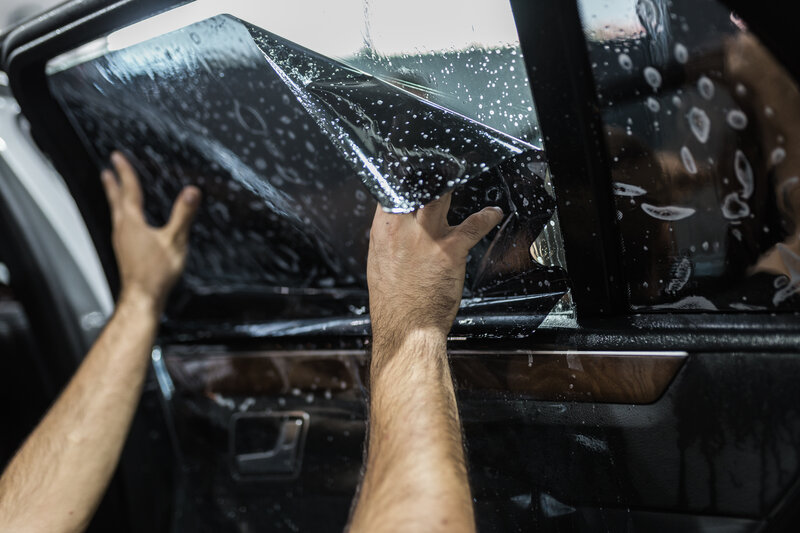Why Car Window Tinting is a Must-Have for Modern Cars
Wiki Article
Window Tinting Regulations and Standards: What You Need to Know Prior To Tinting Your Automobile
Prior to proceeding with window tinting for your automobile, it is important to familiarize yourself with the varied regulations and guidelines that govern this method across various states. These regulations dictate the allowable degrees of color darkness, commonly measured by noticeable light transmission (VLT) percentages, and consist of specific terms for front windscreens intended at making sure road safety.Introduction of Window Tinting Rules
Window tinting legislations are frequently subject to variant across various territories, reflecting regional laws and safety and security considerations. These legislations dictate the permissible levels of tint darkness and reflectiveness on lorry windows, guaranteeing that chauffeurs preserve sufficient exposure while also securing against harmful UV rays and heat.The majority of laws categorize window tinting based upon the Visible Light Transmission (VLT) portion, which shows the amount of light that can travel through the home window. Generally, lower VLT portions represent darker tints. Laws often distinguish in between the front, side, and back windows, with stricter limitations related to the front windshield to boost safety and security for both the vehicle driver and other road users.
In addition, some jurisdictions enforce restrictions on the reflectivity of the color, stopping too much glow that might harm visibility. Exemptions to these regulations may exist for individuals with specific clinical problems requiring extra sun security. Compliance with window tinting policies is vital, as offenses can cause fines, required removal of the tint, and possible boosts in insurance coverage costs. It is important for vehicle owners to acquaint themselves with regional legislations prior to proceeding with window tinting installments.
State-by-State Tint Laws
Recognizing the details home window tinting policies in each state is vital for lorry proprietors seeking to abide by the regulation. Each state in the united state has actually developed its own set of rules controling home window tinting, which can vary significantly. These laws often dictate the allowable degrees of color darkness, the sorts of home windows that can be tinted, and any medical exemptions that might apply.For circumstances, states like California have rigorous restrictions on color darkness for front home windows, while others, such as New Mexico, may allow darker colors. Furthermore, particular states mandate particular exposure percentages for various home windows, including the windshield, front side windows, and rear windows. It is vital for auto owners to acquaint themselves with their state's regulations to avoid potential fines or fines.
In addition, some states may call for a qualification sticker to be positioned on tinted home windows, showing conformity with state laws. Failure to comply with these policies not just takes the chance of lawful effects but can additionally affect safety and presence while driving. Lorry owners must conduct complete research or consult neighborhood authorities to guarantee complete understanding and conformity with state-by-state color guidelines.
Allowed Color Kinds and degrees
Numerous vehicle proprietors might be surprised to learn that enabled tint degrees and kinds vary widely across various states. Each state has developed its very own policies concerning the allowable darkness and reflectivity of window tint, commonly gauged by Visible Light Transmission (VLT) portions. VLT describes the amount of light that can go through the colored windows; thus, a reduced percentage suggests a darker tint.
Moreover, the sorts of tint materials allowed can differ, with some states prohibiting metal or mirror-like surfaces. It is vital for lorry owners to acquaint themselves with their state's specific laws to make sure conformity. Non-compliance can result in fines, compulsory removal of the color, or various other legal repercussions, making it essential to understand these guidelines before proceeding with installation.
Medical Exemptions for Tinting
While not all states supply allocations for medical exceptions relating to window tinting, those that do identify the need for particular people to enhance presence and comfort because of clinical problems. Numerous clinical conditions, such as lupus, skin cancer, and specific eye disorders, can provide individuals specifically conscious sunlight. These people may require darker tints to shield themselves from dangerous UV rays and glow.
It is essential to note that despite a medical exception, there might still be constraints on the level of color enabled. Conformity with state legislations guarantees that individuals are both secured and within legal limitations. Those considering clinical exemptions ought to contact their neighborhood Department of Motor Vehicles or comparable authority to comprehend the requirements and treatments needed to look for an exception efficiently.
Fines for Non-Compliance
Stopping working to conform with home window tinting legislations can bring about considerable fines, which vary by state. Legislation enforcement agencies are encouraged to release citations for lorries that do not abide by the specified tinting regulations. These penalties usually include penalties, which can range from modest amounts to numerous hundred dollars, relying on the severity of the infraction and the state concerned.In some territories, repeated offenses might cause rising fines or added charges, such as mandatory court looks. In addition, non-compliance may require the removal of prohibited tinting, frequently at the proprietor's expenditure. In extreme situations, regular culprits may face suspension of their car registration till conformity is attained.
Additionally, insurance ramifications may develop from getting multiple citations for home window color violations. Insurance providers might view such infractions as an indication of riskier habits, potentially resulting in enhanced costs or trouble in coverage.
To avoid these fines, it is critical for automobile owners to acquaint themselves with their neighborhood home window tinting laws and ensure that their automobile complies (Window Tinting). This positive strategy not only stays clear of legal ramifications however also promotes roadway security
Conclusion

click this link
A lot of regulations identify window tinting based on the Visible Light Transmission (VLT) portion, which shows the quantity of light that can pass via the window. Compliance with home window tinting laws is vital, as offenses can result in penalties, compulsory elimination of the tint, and possible rises in insurance coverage costs.Comprehending the certain home window tinting laws in each state is vital for car owners looking for to abide with the law. These guidelines usually dictate the allowable levels of tint darkness, the kinds of home windows that can be tinted, and any medical exemptions that may use.
For circumstances, states like The golden state have rigorous limitations on tint darkness for front windows, while others, such as New Mexico, might allow darker colors.
Report this wiki page